Innovation Projects
Ohio has invested in projects with Day and Employment service providers partnering with Subject Matter Experts to enhance their business models and practices. These innovative projects are geared towards building capacity and fostering positive change in the state. They focus on developing strategies that better support competitive and integrated employment outcomes, providing more person-centered services, and establishing sustainable funding models.
Building Innovative Service Models
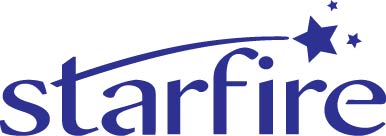
Starfire has provided individualized supports since 2016. At this time the Community Connectors program began. There is also the Learning Network that provides trainings and the Family Leadership Network. Starfire’s purpose is to heighten the collective imagination of what is positive and possible in our community.
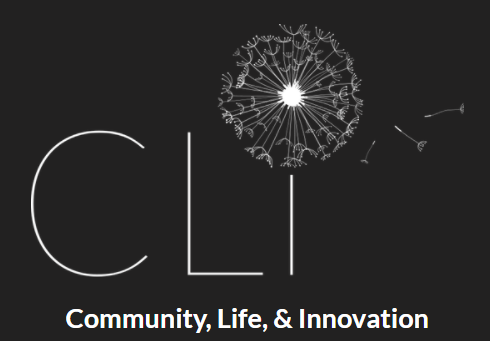
CLI began services in 2016 with a strategic aim “To settle into operation(s) that ensure our financial independence [in order to] grow to meet the needs of people with DD in the Firelands region.” The mission created in 2016 remains largely unchanged:
The mission of CLI Incorporated shall be to increase the earnings and status of persons with DD through business development, supported employment, and alternative services. CLI’s primary purpose is to support individuals with DD to be respected, independent members in their communities and to help them to identify their personal objectives and to assist them to achieve those goals.
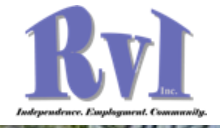
Riverview Industries Inc. (RVI) conducted an assessment of their strengths and needs as an organization. and found that although it had come a long way since 1973 when it was started by parents and advocates, its evolution was not clear overall gestalt. Through the assessment process, RVI was able to clarify the overarching value that connected the array of their programs. In addition, development of a Business Plan brought to light the value that RVI wanted to drive their organization forward— Inclusion. The organization feels strongly that building on the principles of inclusion and interdependence with the community for all of its services will create a cohesive path forward.
RVI believes in the value of belonging and finding meaningful community memberships for the people they serve. Their mission “is to move people toward the life they want to live.” To achieve this mission RVI programs need to create avenues for ensuring meaningful community membership. RVI is expanding how they accomplish this from small groups in the community to volunteering in the community, leisure activities that expand social connections. It is expanding the concept of what can occur at the main facility through bringing the community into the facility with options such as a shared workspace and small group meetings. RVI believes that no matter what a person’s ability is everyone has something to offer to the community and is worthy of belonging. RVI has been successful in this area and looks forward to growing and expanding its success with Inclusion.

Koinonia Homes (Koinonia) is proud of its history and tradition of innovation in services to support people with developmental disabilities to live full and productive lives in their community. Koinonia Enterprises, (KE) the division of Koinonia responsible for all day and employment services, has played a key role in expanding the horizons and opportunities of the people it supports. Over the last ten years, KE has created and expanded robust employment services geared toward competitive integrated employment, closed its 14c workshops participated in provider transformation initiatives, and in partnership with Summit DD and local school districts, established Compass Pathfinder, a community-based transition program. Beginning in 2019, Koinonia established community engagement criteria for all programs, building an organization-wide performance evaluation and quality indicator requirements. As part of this initiative, the agency adopted the Life Canvass Assessment to measure and monitor inclusion and person-centered goals. The agency developed a Choices app designed to help people find and choose resources in the community that match their personal goals and interests.
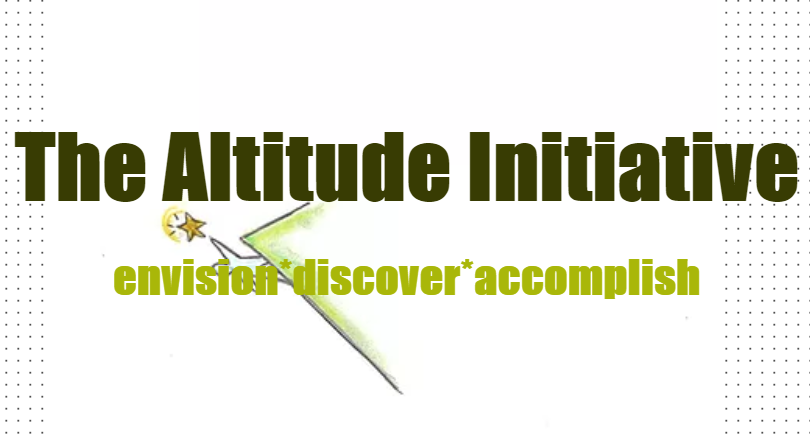
The Altitude Initiative (“Alti” in the following) is a corporation that exists to help individuals with disabilities experience self-directed lives through meaningful and inclusive employment, the development of skills and personal interests, and the creation of strong connections within their communities. Alti has provided community-based services to currently circa 70 people since 2013 without a hub or facility of any kind. All of Alti’s community employment and community engagement services are provided by our staff and DSPs quite literally in the community.
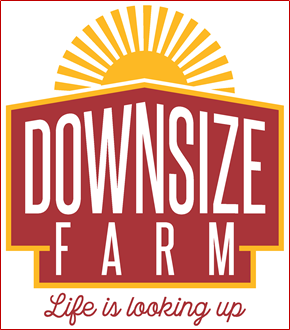
Downsize Farm was founded as a family business in 2007 on a 2.5 acre property in rural Ohio. In an entrepreneurial spirit, Bob and Midge Custer aimed to create greater opportunity for their two sons with Down’s syndrome. Prior to the birth of Downsize Farm, the Custer’s spent years dairy farming, helping with 4-H, and responding to local farming community callings. This experience led to the premise for Downsize Farm—a program where people with disabilities could cultivate personal growth through learning by doing. Here, individuals could learn about basics of gardening, cooking, bailing hay, and animal care.
Learning by doing has remained a cornerstone philosophy for Downsize Farm, but the path for programs and activities has grown drastically. In 2014, we launched Downsize Jobs, a vocational program devoted to helping individuals with disabilities cultivate job skills to gain competitive community employment. Downsize Farm also launched an employment team, utilizing Vocational Rehabilitation services, and have established their position as community leader in helping individuals with disabilities to gain competitive community employment. The Organization aims to change the community view that people with disabilities are contributors, rather than consumers.
In 2020, the daughter of Bob and Midge Custer, Bobbi McKee took on the role of CEO. Bobbi aims to take Downsize Farm’s growth to a new level through established programs of Day Hab Vocational, Employment and Residential. Downsize Farm also aims to strategically grow financially through sound process and marketing. Among imminent change, the new Downsize Farm will keep its philosophy of learning by doing at the forefront. As our Organization motto states, Life is Looking up at Downsize Farm.
Employer Transformation (2021)
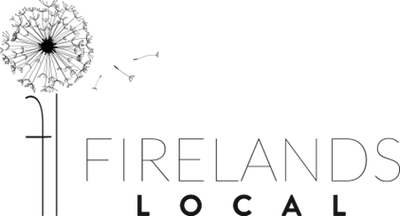
Firelands Local LLC (https://firelandslocal.com) began as a subsidiary of CLI Incorporated, which, in turn, grew out of the one-time county board-run “Christie Lane Industries” in Norwalk, Ohio. Firelands Local is now a business service organization where adults with developmental disabilities provide recycling, document destruction, courier, and assembly services. Firelands Local’s mission is finding and providing meaningful work for adults with developmental disabilities (DD), with the vision of changing the perception of adults with DD in their community and beyond.
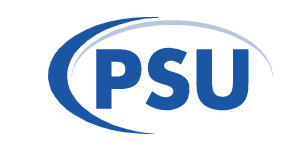
ICA - Innovative Curb Appeal, is a subsidiary of PSU, Inc. in Lebanon, Ohio that provides landscaping and related services in Warren County. PSU, Inc. had been operating a lawn crew as a division of the Warren County Board of DD for many years. Strategic and business planning efforts are now underway to determine the feasibility of building this lawn service into an eventually fully independent employer of individuals with and without disabilities. At ICA, “we don’t just provide top-quality lawn care for your curb appeal – in doing so, we create meaningful employment opportunities with people with disabilities.
Building Innovative Business Strategies (2019)
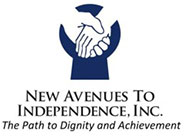
For more than 65 years, New Avenues for Independence (NATI) has been providing services in Northeast Ohio for people with intellectual and developmental disabilities. The organization’s mission is to support people who have developmental disabilities to achieve healthy, fulfilling, and enriched lives. In the beginning, NATI’s main emphasis was residential and children’s services. But in 2005, New Avenues established a Day Services program that expanded in 2007 to include vocational services linking individuals with disabilities with meaningful employment opportunities. Today, New Avenues’ programs are serving over 300 individuals, in Ashtabula, Cuyahoga, Lorain, Lake, and Summit counties, through an array of programs and services.
Subject Matter Expert: TransCen, Inc
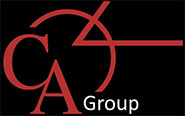
CA Group has built many integrated employment and meaningful community services. We are ready to take this to the next level and plan for full community inclusion, with a focus on sustainability. With help from the SME, a business plan and roadmap will be developed. In coordination with this, CA Group will be completing a new strategic plan and evaluating their mission and vision keeping its culture that begins with the assumption that everyone is competent and can be successfully employed and/or engaged in one’s community.
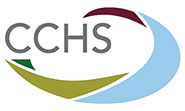
Columbus Center for Human Services, Inc. (CCHS) is a non-profit provider of comprehensive support services for individuals with intellectual and developmental disabilities. Our mission is to prioritize the health, welfare, and personal goals of individuals with disabilities and to promote positive roles for them in the community. Organization-wide, we currently provide support to 533 individuals in Franklin, Union, and Madison counties through a variety of programs and services. This proposal focuses on our Adult-day program, Career, Activity, & Community (CAC).

Goodwill Columbus has a vision to transform its Adult Vocational Rehabilitation and Day Habilitation Program to a community integrated and supported employment model. The philosophies chosen to guide this model focus on 100% inclusion, zero exclusion, and competitive employment. They will also institute their services based on peoples’ choices and allow individuals with disabilities to have control over their day. Goodwill serves hundreds of individuals each year and the transition to community-based services is of great importance in ensuring that individuals receive the best services and can live their best life.
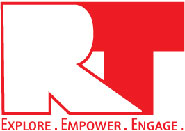
RT privatized on January 1,2018 with a new Management Team at the helm as the previous CEO retired 12/31/17. Immediately, we began evaluating our business and service structure specifically regarding our existence/Who are we?, Mission & Core Values and Strategic Planning, Vocational Habilitation within a sheltered Production Facility setting, Adult Day Services needing to focus on meaningful activities and community inclusion, Transportation stigma with buses and logos, All services job titles and Table of Organizational structure, DODD Rule regarding service delivery, hiring and training requirements, Business Department allocation of funds & understand revenue streams.

Venture Production provides day array and non-medical transportation services to fifty-five (55) adults with developmental disabilities in Adams County. 15 out of the 55 people also receive homemaker/personal care services from Venture Productions. Venture Production was incorporated in 1981 to be the sheltered workshop program of the Adams County Board of DD. It is the only provider of adult day array services in Adams County resulting in a wide range of abilites and needs within the day services program.
Building Innovative Business Strategies (2019)

Waiver supports grant pilot
Chrysalis Advantage Point offers an innovative alternative to traditional workshop day-habilitation for consumers in Crawford, Wyandot, Marion, and Seneca counties. CAP focuses on providing meaningful, community-based volunteer experiences; intensive targeted in-house soft-skill work training; and vocational development through 1-hour daily on-site and community-based paid work experiences (at minimum wage.) CAP has developed partnerships with many local non-profit organizations for volunteer experiences. At sites such as Red Cross, Meals on Wheels, Food Fairies, the Bucyrus Public Library, local soup kitchens, and local churches, consumers are provided valuable work experiences in janitorial, food service, stocking, and customer service, while also providing a valued community service. During the term of their grant, CAP has targeted to serve 75 consumers, and place a minimum 25 of those in a customized employment situation.
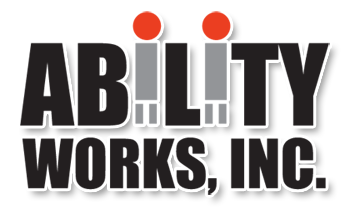
Waiver supports grant pilot
The Assurance Network, is a division of Ability Works dedicated to providing high-quality on-demand services for transportation using current independent providers, residential providers, agency providers, and the development of new certified direct care workers.
Our Vision: People with Disabilities and Credentialed Providers will connect to meet on-demand service needs through a communication center for improved access to the community.
The opportunity offered by The Assurance Network is to provide greater community engagement by more individuals thus supporting positive connections to service providers, building relationships and community cohesion. The challenge is to increase access to transportation, grow the number of respite providers, and improve access for community engagement opportunities.
View a video to learn more about how to Give A Ride and Get a Ride with the Assurance Network.

ICF supports grant pilot
CRSI has been providing Medicaid funded services to individuals with developmental disabilities since 1976, currently serving more than 700 individuals with residential services in 25 western Ohio counties and 90 individuals with adult day services in three counties. Our Champaign County ADS program, serving 38 individuals, is the targeted scope for this pilot project. The project consists of two phases – a strategic planning phase, completed 4Q2016, and an implementation phase, ongoing. Our action plan addresses the six deliverables outlined in agreement with DODD:
- A decrease in the use of facility-based services
- An increase in integrated community-based employment and day services
- A focus on the achievement of individual integrated services for individuals with complex needs (internal and external communication)
- An increase in the utilization of braided funding supports
- An increased use of career discovery processes
- An increase in staff competencies and skills related to integrated employment and community services
A draft road map document has also been submitted quarterly with the final version submitted one month prior to the end of the grant agreement.
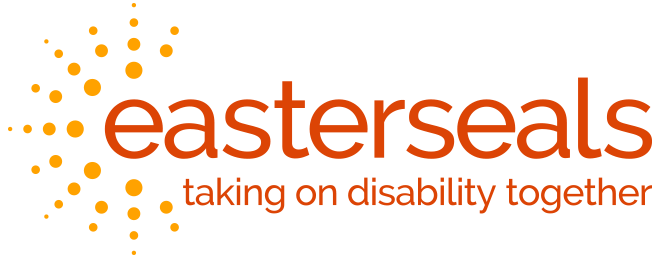
Waiver supports grant pilot
Easter Seals Integrated Community Supports Start Up Pilot helps accelerate the transition from facility-based to integrated community-based services and community employment. Easter Seals has developed a neighborhood hub program, which focuses on working with individuals in the community in social, recreational, and work readiness/volunteer activities. The purpose of the program is to assist individuals who have spent most of their lives working in a sheltered setting, to be exposed to the community and gain independence and learn through real life experiences. This approach enhances other agency efforts underway to decrease the number of employment workshops we operate from three to two, help individuals move into community employment, and expand the number of existing Work & Grow (a partnership program with area YMCA facilities) sites to transform day programming from facility-based to community-based services. Easter Seals worked with a consultant to prioritize and refine its strategies based on known best practices toward the goal of becoming a community based organization. These strategies will be incorporated into the agency’s strategic planning process and timeline.
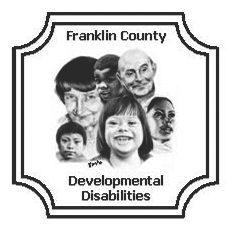
Waiver supports grant pilot
The Franklin County Board of Developmental Disabilities adult services department currently serves approximately 1100 individuals in facility-based adult day services. These individuals are supported by over 180 direct service staff. The Integrated Community Supports Start-up grant provides funding to assist FCBDD adult services in the transition from facility to community-based services and supports which must take place over the next several years. It has funded a process of present to future state mapping and a strategic plan. This will lay the foundation for the development of a “roadmap” of transition action steps and timelines for the department’s transition to integrated and community-based services and supports. The grant will also help fund the development of a demonstration project to serve as a model for individualized community-based day services and supports for 75 individuals in traditional facility-based day services and 16 individuals in a community-based "hub" pilot. This demonstration project includes the development of a curriculum to be used for training facility-based adult services staff in community-based service and support skills.
Franklin County Board of Developmental Disabilities Strategic Plan

ICF supports grant pilot
The pilot for the ICF grant officially started in May, 2016 and will run through the June 30, 2017. The scope of the pilot is to work with all 23 residents in our ICF facility. The purpose of the pilot is to lay a roadmap for all 23 residents to become active participants in their communities whether that be through competitive employment or social activities. On a high level over view, this will be accomplished by having all 23 residents go through the Discovery process and then develop individualized goals and strategies (a roadmap) for each resident to achieve community integration. The Career Consultant will be focus on 6 of the individuals that are on the road to employment from facility based services to competitive employment (supported / customized / self). She will also be training ICF staff in the Discovery process to assist in expanding the community / social activities of the remaining residents as well as introducing work options.

ICF supports grant pilot
Horizons of Tuscarawas and Carroll Counties, Inc. is the recipient of the ICF Pilot grant. The goal of the grant is to expose and engage individuals living in the ICF/IID to community based and integrated options. We also hope to demonstrate what factors contribute to successfully providing community based services from an agency perspective. Since starting the grant, there has been an increase in regular volunteer opportunities, community-based discovery assessments, and other community life engagement activities. Additionally, staff are training in the areas of person centered planning, the discovery process, community integration and community employment. Individuals participating in the pilot program have enjoyed exposure to new possibilities in their community and will continue expanding on what their community offers and what they can offer their community. In the future, we hope to deliver services in the community and assist individuals we serve to explore their own personal desires, strengths, and abilities.
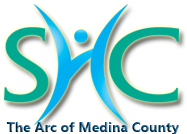
ICF supports grant pilot
The focus of the ICF/IID Employment First Grant received by SHC/The Arc of Medina County is to increase the employment and community engagement opportunities for individuals residing in the agency’s ICF/IID group homes. The pilot group is composed of 11 individuals at all points of the path to employment with ICF IAF scores ranging from 2 to 6. At the same time the grant was received we moved one day program to a light industrial site and are moving from facility based to a hub model. Not only have the individuals in the pilot benefitted from the grant, our staff has received valuable trainings and expanded skills. The individuals have experienced increased time in the community. They’ve increased their volunteer engagement and opportunities in the discovery process. We are also providing ongoing communication with individuals, families and community stakeholders.

Waiver supports grant pilot
For its first 20 years as an organization, Starfire ran programming focused on social engagement for people with developmental disabilities. We established an outing program for groups of people with DD to attend social activities together, and two facility-based day programs. People with DD engaged in “life skills" activities at these day programs such as cooking, exercise, and day trips. At our peak, Starfire served up to 600 people with DD with and ran 100 outings per month. In 2009, the teachings of Dr. Wolf Wolfensburger and Dr. John O’Brien led Starfire to an important realization: these programs were not leading to sustainable, lifelong relationships or a true sense of community belonging. Instead, families had become dependent upon Starfire for most of their loved one’s social life and people with DD were still in large part socially isolated.
Consequently, in 2010 we formed a new Strategic Plan with our stakeholders and our person-centered values guiding us. This plan led us down the path of transforming our organization away from congregated, segregated services that grouped people with DD together for supports, to fully integrated, one-on-one supports that focus on each person’s gifts and distinct contributions. Today, our mission has evolved from supporting groups of people with DD through entertainment and social activities, to building a sense of belonging and purpose through relationships and valued social roles in the community, one person at a time.
Starfire’s one-on-one support program for people with DD aims to "spring" people with DD into community life so they are known by others for their gifts, not their disability. By connecting people with DD to relationships in the community, we see that their long-term quality of life and well-being improves. We also see people with DD receiving more jobs and valued role opportunities through relationships they make in the community.
Starfire’s program has these key aspects:
Person-centered Planning – to assist someone with disabilities to plan their life by focusing on their strengths.
Normalization (W. Wolfensberger) - people with developmental disabilities must be seen as valued, respected citizens first in order to connect with the community.
Asset-Based Community Development (J. McKnight) - leveraging free resources, local assets as the primary building blocks of sustainable community
"Five Valued Experiences" (J. O’Brien) - A service model that states all citizens have better lives when they have opportunities to share places, make choices, experience respect, grow in relationships, and make contributions.
On September 16, 2016, Starfire completed this 7-year transition out of segregated programming and into an organization that provides direct supports in the community - working with one person at a time. Our transition out of our facility-based, segregated services came after years of communicating with people we serve and their families about the importance of integrating people with DD into community life. Our family partnerships built through this communication are an integral piece of this transition, as many of the people we serve rely on their families as adults (87% of live at home with a family member). Starfire is now building to serve 100 people with DD in this new way, with current program membership at 73. Rather than aiming to reach hundreds of people and providing group supports, we believe that we can serve each person in a deeper way through a smaller, more localized approach.
Starfire’s performance measures include (a) increasing the number of community relationships (people without disabilities who are not family or paid staff) in persons with DD’s social network; (b) supporting people with DD in attaining a regular valued social role in their community; and (c) actively engaging families in the building a stronger social network for their family member with DD. Outcomes to date include:
- 77% of people with DD do not have a valued social role in the community at the start of our program. For people with DD who commit to a minimum of 150 hours of one-on-one supports (~1 year) with Starfire, our data shows that 89% attain a valued social role in the community such as a volunteer position, internship, or job by the end of that time.
- The average person with DD we serve has a network of 2 connections (unpaid, non-family, people without disabilities) at the start of the program. 92% of people with DD supported see an increase in their social network through new community relationships (people without disabilities, who are unpaid and non-family) after 6 months.
- 95% of people with DD supported maintain previous relationships with community relationships after 6 months.
- 86% of families of people with DD supported are reported to be active in building their family member with DD’s social networks.
- 32% of people with DD report a high quality of life at the start of the program. 64% of people with DD report a high quality of life after 150 hours (~1 year) with us.
- 92% of the jobs attained by people with DD come from social connections built through Starfire’s support.
Starfire’s conviction is that all people - no matter their challenges - can and should have a place in the community where they belong. Starfire’s staff take a person-centered approach to their support work to build a unique social network of people and places for each individual person. Staff attend monthly trainings on topics that increase their community building skills and empathy as well as annual workshops on Social Role Valorization and design thinking.
We are confidently heading toward a future for people with IDD that is tailored to fit their interests, skills, and passions, and leads toward a meaningful life filled with community relationships. We know that the longer these community relationships last, the more people with DD will be tied to their community, and with that deepened connection, the person’s belonging will sustain far beyond Starfire’s support.

ICF supports grant pilot
Sunshine Communities received grant funds to develop two projects. Project A, development of community sites, will reduce by 20% ICF individuals attending day activity sites on campus. These sites focus on community integration through a number of avenues, use of person centered plans to direct activity planning and participation, and increase engagement with community partners. Project B, development of our Life Coaching Center, creates a “real life" home for individualized instruction in adult daily living skills, workplace and social skills, use of the community, and health and wellness.
As of November, 2016, five community sites are open; four are activity based and one is employment based. Future plans include additional community sites, resulting in fewer individuals participating in on campus sites. We believe these creative day services options are means for the individuals we serve to not just be in the community, but be part of it.
Project Transformation Plans
Project Transformation 2.0 teams were supported through the Employment First State Leadership Mentor Program coordinated by the Office of Disability Employment Policy. Ohio was one of 16 states selected to participate, and was able to provide technical assistance to eight agencies across the state to build capacity for best practices regarding community based services and integrated, competitive employment. Teams worked with Sarah Murphy and Dale Verstegen at Transcen to identify areas for improvement and develop strategic plans. They received on site visits, training, and tools to assist in creating their final plan.
Butler County Board of Developmental Disabilities
Goodwill Columbus
Hattie Larlham
Medina County Board of Developmental Disabilities
Tuscarawas County Board of Developmental Disabilities
United Cerebral Palsy of Greater Cleveland
The original Project Transformation consisted of four county boards and three private providers who are working with five expert systems transformation consultants to create agency-specific transformation plans. Support for these teams include on-site visits, training, and tools from the Subject Matter Experts.
Champaign/Shelby County Board of Developmental Disabilities
Preliminary Implementation Steps
CLW
Preliminary Implementation Steps
Darke County Board of Developmental Disabilities
Preliminary Implementation Steps
Fairfield County Board of Developmental Disabilities
Preliminary Implementation Steps
Koinonia
Preliminary Implementaiton Steps, A
Preliminary Implementation Steps, B
ViaQuest